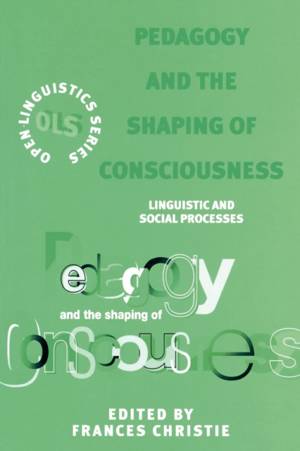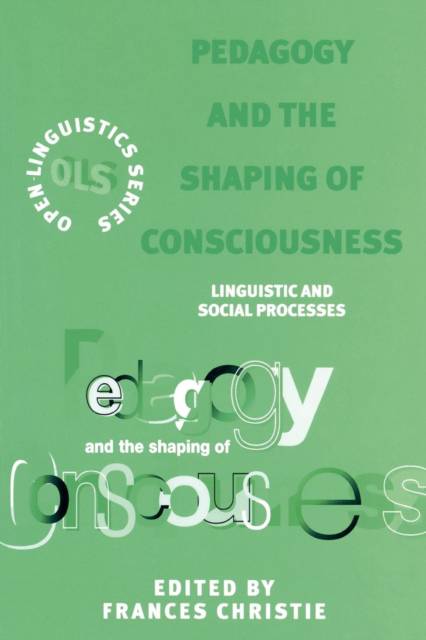
- Retrait gratuit dans votre magasin Club
- 7.000.000 titres dans notre catalogue
- Payer en toute sécurité
- Toujours un magasin près de chez vous
- Retrait gratuit dans votre magasin Club
- 7.000.000 titres dans notre catalogue
- Payer en toute sécurité
- Toujours un magasin près de chez vous
Pedagogy and the Shaping of Conciousness
Linguistics and Social Processes
Description
Basil Bernstein's sociology and systemic functional (SF) linguistic theory first came into contact in the 1960s and 1970s, when Bernstein, Michael Halliday and Ruqaiya Hasan all worked at the University of London. While the two theories addressed different questions and employed very different methodologies, the two nonetheless had a lot to say to each other. Both were concerned to explore the nature of social experience and in the process to explore a great deal about the nature of social inequalities. Both in their different ways acknowledged the powerful tool of language in the social construction of experience. It was in fact the latter theme, more than any, which brought the two theories into dialogue. Bernstein recognized early on the significant role that language played in socialization, and Halliday and his colleagues were actively seeking a theory of language that helped explain the nature of the social. This volume seeks to renew the dialogue between Bernstein's sociology and SF linguistic theory. It addresses questions to do with the pedagogic device and pedagogic discourse, notions of classification and framing, and coding orientations, among other things. The discussions demonstrate the role and significance of pedagogy in shaping consciousness. They also reveal the continuing relevance of both theories to each other.
Spécifications
Parties prenantes
- Editeur:
Contenu
- Nombre de pages :
- 320
- Langue:
- Anglais
- Collection :
Caractéristiques
- EAN:
- 9780826447470
- Date de parution :
- 01-06-00
- Format:
- Livre broché
- Format numérique:
- Trade paperback (VS)
- Dimensions :
- 156 mm x 234 mm
- Poids :
- 435 g






